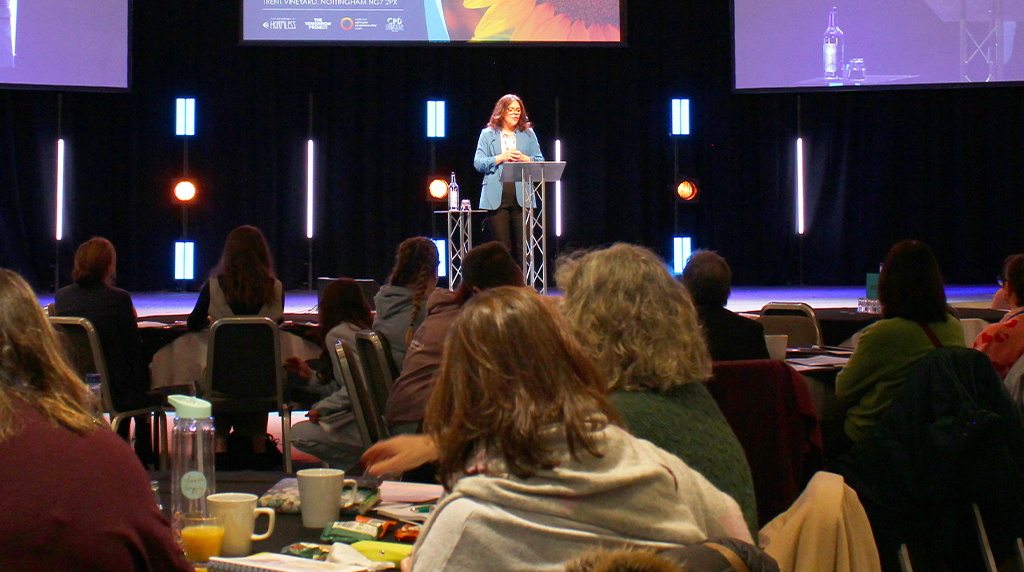By Caroline Harroe (Harmless CEO)
Last week was Maternal Mental Health Awareness Week. As a mum of five, whose journey into motherhood wasn’t exactly the picture-perfect story often sold to us – it was, and continues to be, a path carved through significant personal trauma – this conversation is one I believe we need to have, urgently and honestly.
We all know the script: having a baby is supposed to be the pinnacle of joy, an arrival lounge filled with chubby-cheeked bliss and an overwhelming sense of calm completeness. And yes, there are moments, so many of them, that steal your breath with their beauty. The scent of their head, the fierce grip of their tiny hand, a love so vast it physically aches. But there’s another side to this coin, a side that’s often kept in the shadows, hushed in our collective narrative: the profound loneliness that can settle in, even when you’re surrounded by the beautiful chaos of new life.
I’ve walked that path. Amidst the endless feeds, nappy changes, and the symphony of a house brimming with children, I’ve felt an isolation so deep it was disorienting. And it turns out, this isn’t a rare or personal failing. Recent research highlights a stark reality: a staggering three in five (62%) parents with a baby under 12 months have felt loneliness negatively hit their mental health. Following World Maternal Mental Health Day on 7th May, this isn’t just a statistic; it’s a silent scream from countless new parents.
The Great Unravelling We’re Not Prepared For
Why does this happen? Becoming a parent, particularly a mother, is an identity quake of epic proportions. It’s an abrupt, often jarring, shift. The person you were before feels distant, like a character from a past life. I remember grappling with this strange new version of myself, trying to reconcile her with the woman I used to know. This internal recalibration is confusing, challenging, and while it fosters immense growth, it can also make you feel utterly alien, even to yourself. When you’re already feeling unsure in your own skin, being around others, even loved ones, can feel like wearing clothes that don’t quite fit.
And this is where my real question begins to burn: why aren’t we told this? Why isn’t the potential for this profound identity shift, this aching loneliness, part of the antenatal curriculum alongside breathing techniques and nappy-changing demos? We are bombarded with images and expectations of serene, joyful motherhood, a seamless transition into a state of blissful maternal competence. Society, and – let’s be honest – we ourselves, pile on the pressure to experience this journey with nothing but ease and radiant happiness.
The reality for so many of us is far, far different. It’s messy, it’s raw, and it’s often incredibly hard. Yet, there’s this unspoken rule that we mustn’t admit it, lest we be seen as ungrateful or, worse, failing. This pressure to perform, to present an Instagram-worthy facade of motherhood, creates a fertile ground for shame. And shame, as we know, thrives in silence and isolation. It tells you you’re the only one struggling, the only one who feels lost. It whispers that your struggles are a reflection of your inadequacy.
For me, carrying the weight of past trauma into motherhood meant these feelings of loneliness and not measuring up were sometimes amplified. Old wounds can be easily prodded when you’re at your most vulnerable – sleep-deprived, hormonal, and navigating a brand-new, demanding role. The lack of honest preparation for these emotional undercurrents left me, and I know many others, feeling blindsided and struggling to cope with an unseen mental load. This isn’t just about ‘baby blues’; it’s about the potential for serious mental health challenges like depression, anxiety, parental burnout, and a crippling loss of self-esteem to take root when we feel unsupported and overwhelmed. And when sleep deprivation – that universal torture for new parents – enters the mix, our ability to regulate emotions or manage stress plummets.
Finding Your Way Back to Yourself: It’s a Journey, Not a Destination
So, what can we do when we find ourselves in this lonely place, adrift in a sea of societal expectation and personal upheaval? There’s no magic wand, but there are lifelines, bits of wisdom I’ve gathered along my own rocky path, and echoes of what those who support new mothers always champion:
- Redefine Connection: Forget the pressure to instantly assemble a new tribe of “mum besties.” Think of finding “mum colleagues” first – people who get the daily grind. True friendship takes time. Some days, just being around other humans, even without deep conversation – a trip to the library, a walk in the park, a coffee shop – can be a small anchor.
- Listen to Your Energy: You don’t have to be “on” all the time. If your social battery is low, a quick call to a loved one, or even just having music or a podcast playing, can feel connecting without being draining.
- Guard Your Wellbeing Fiercely: Your needs still matter. In fact, they matter more than ever. Be radically kind to yourself. Sleep when you can, eat when you can, and don’t believe the negative self-talk that exhaustion fuels. Find tiny moments to connect with things that once brought you joy, or discover new small comforts.
- Speak Your Truth (Even if Your Voice Shakes): This is a hard one, especially when shame has its grip. But talking to someone you trust – a partner, a friend, a family member, or a counsellor – can be transformative. Voicing the loneliness, the fear, the confusion, can lessen its power. Sometimes you’ll find that what you thought was loneliness is also tangled up with grief for your old life, or unexpressed anxieties.
- Seek Gentle Community: Connecting with other mothers, whether in person or online, can be incredibly validating. It reminds you that the mixed, messy feelings are normal. If big groups feel overwhelming, start small. Sometimes just seeing the same familiar faces on your regular walk can build a quiet sense of belonging.
- Talk About the Hard Stuff Before Baby: If you’re expecting, or supporting someone who is, try to have honest conversations about the possibility of loneliness and mental health struggles. It’s so much easier to ask for and offer support if the door has already been opened.
- Get Curious, Not Critical, About Your Feelings: When loneliness hits, what else does it stir up? Old insecurities? Self-criticism? Try to observe these feelings with compassion. Journaling, creative expression, or simply asking, “What would I tell my child if they felt this way?” can help shift perspective.
- Curate Your Digital World: Social media can be a double-edged sword. It can offer connection but also fuel comparison and inadequacy. Be ruthless about curating your feeds so they genuinely nourish and support you, rather than deplete you.
Today, my plea is for more honesty. More honest conversations before we become parents, more honest sharing of the diverse realities of parenthood, and a societal shift away from the damaging myth of effortless perfection.
Motherhood is a profound, powerful, and often paradoxical journey. It stretches you, breaks you open, and remakes you. Feeling lonely or overwhelmed isn’t a sign you’re doing it wrong; it’s a sign you’re human, navigating one of life’s most intense transitions, often without the map you thought you’d be given. Reach out, be gentle with yourself, and know that you are not alone, even when it feels like you are.




